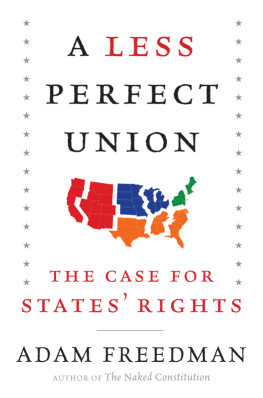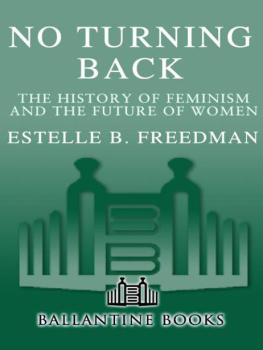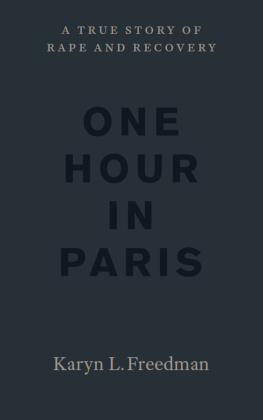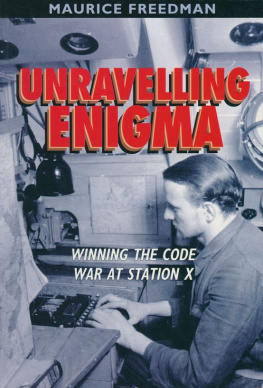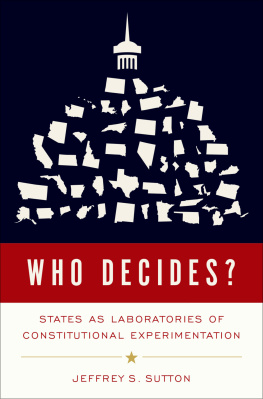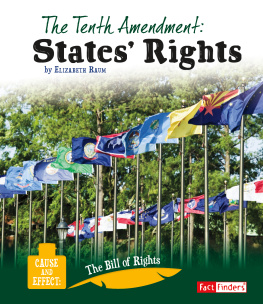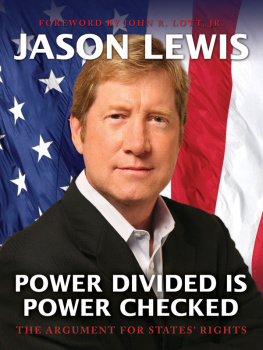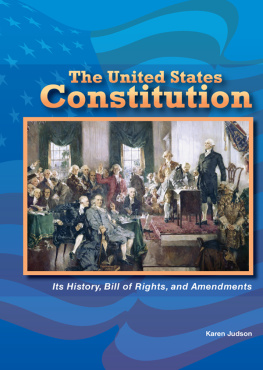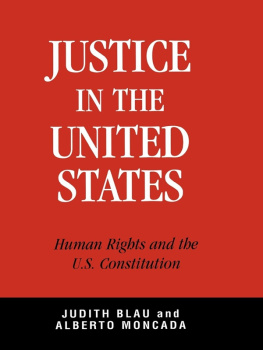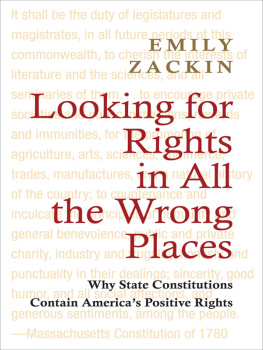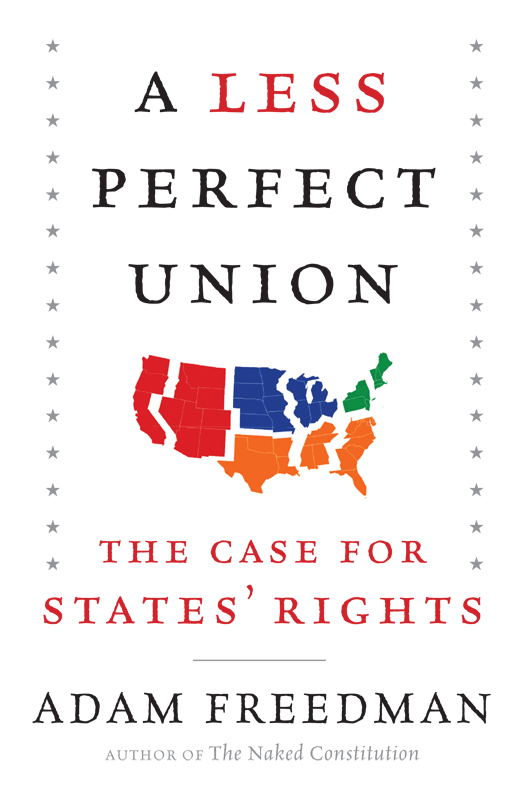To Simon, Marion, Mark, and Paul
Contents
Guide
F alesha Augustus was at her wits end.
Her ten-year-old son, Willie, was doing poorly at his local elementary school in Baton Rouge, Louisiana. He complained about being bullied, and he seemed to be overwhelmed by the large, unruly classes. When Falesha pleaded with school officials to teach her child the fundamentals, they ignored her. When she came in person to seek the principals help, the principal told her to stop hanging around the school.
Things finally began to change in 2012, when Willie qualified for a scholarship to attend the private school of his choice, or rather, his mothers choice. The scholarship was funded by the state of Louisiana, courtesy of a school voucher program aimed at low-income kids trapped in failing schools. Falesha promptly enrolled Willie in Hosanna Christian Academy in East Baton Rouge, a school known for small classes and a structured approach. Almost immediately, Willie began to thrive. All I hear about is how he is eager to learn, Falesha said as Willie began fourth grade at his new school.
The Louisiana voucher program has benefited thousands of families, 90 percent of whom are African American. The scholarship students are doing better than they did at their old schools, with a marked improvement in math and reading test scores. Parents love the program, and so do the taxpayersthe vouchers save Louisiana millions of dollars, because private education is more cost-effective than public education.
Popular, effective, and inexpensive: Who could oppose the Louisiana scholarship program? Nobodywell, nobody except the federal government. In August 2013, Barack Obamas Department of Justice (DOJ) went to federal court to shut down the Louisiana scholarship program. Why? In theory, the DOJ was seeking to enforce school desegregation orders from the 1970s. But since the Louisiana program was helping black children get into largely white private schools, it was hard to argue that the program was harming African Americans. Instead, the governments lawyers were stuck complaining that the vouchers threatened to leave Louisianas public schools excessively white. The administration did not deny that the scholarship kids might get a better education out of the deal, but it was more important for public schools to maintain the desired degree of racial diversity.
Under pressure from groups like the Black Alliance for Educational Options, the administration eventually dropped its demand that the state kill the program, but only on the condition that the federal government would get to make the final call on each and every scholarship applicationa level of micromanagement that would effectively asphyxiate the whole initiative. The governments move prompted Lindsey Burke, a scholar at the Heritage Foundation, to marvel, Its hard even to wrap your head around the audacity of Washington.
The Taboo Doctrine
States rights is all about liberating Americas states to help kids like Willie Augustus without interferenceor coercionfrom Washington. Thats not to say that every state should adopt a voucher program; rather, the point is that decisions about things like vouchers should be made in state capitals and school districts, not inside the Capital Beltway.
You may balk at the idea of states rights as a force that can help Americas minoritiesthats okay, youve been conditioned to react that way. In newspapers and in classrooms, states rights is endlessly characterized as a shorthand expression for slavery, Jim Crow, and other forms of institutionalized racism. According to the popular but, as we will see, misleading narrative, states rights is a philosophy born in the American South and originally used to defend slavery, then to justify secession, and finally to resist racial integration. No political doctrine this side of fascism has been more thoroughly demonized than states rights. A July 2013 New York Times essay by Michael C. Dawson, a professor at the University of Chicago, pretty much sums up the ivory towers view of states rights with his cocksure allegation that since the nations founding, states rights has been a rallying cry for those who wished to systematically disenfranchise and exploit large segments of their population.
Any politician who dares to breathe the words states rights will be accused, in the shopworn metaphor, of sending out a dog whistle to stoke the racial fears of white voters. When Rick Perry, the governor of Texas, campaigned for president on an explicit states rights platform, CNNs Rick Sanchez breezily dismissed him: States rights is... a racist term, he said. Mitt Romneys campaign dutifully followed this advice and, of course, sailed to victory in the 2012 general election.
The knee-jerk critique of states rights is based largely on the politically convenient but mendacious attempt to link contemporary conservatives with old-time segregationists. Ill get to that in a moment, but the fact is that states rights has historically been the rallying cry for just about every cause that progressives hold dear: the abolition of slavery, union rights, workplace safety, social welfare entitlements, and opposition to war. What, then, is states rights?
Broadly speaking, states rights is the right of every state to exercise all of the powers that have not been specifically entrusted to the federal government. States rights is based on a fundamental individual right: the right of every American to enjoy local self-government. Like many of the rights we hold most dear, states rights is a doctrine embedded in the Bill of Rightsthat is, the first ten amendments to the United States Constitution. As I will argue in later chapters, the entire Bill of Rights was originally a charter of states rights, because its purpose was to restrain the federal government from encroaching on state powers. But for now, it suffices to recall the final provision of the Bill of Rights, the Tenth Amendment:
The powers not delegated to the United States by the Constitution, nor prohibited by it to the States, are reserved to the States respectively, or to the people.
Of course, the Constitution does delegate a number of important powers to the United States (i.e., the federal government). Those powers are set forth mainly in Article I, and they include things like national defense, interstate and international commerce, patents, and post offices. The Constitution also forbids the states from doing certain things like imposing tariffs or declaring war. But for the vast array of government functions that are not specifically withheld from the statesincluding things like health and safety, agriculture, education, and infrastructurethe Tenth Amendment makes it clear that the states remain in charge.
Washingtons minions like to argue that states rights is an unconstitutional doctrine, because our system makes the national government supreme. Thats just plain wrong. Under our system, it is the Constitution, not the national government, that is supreme. Federal statutes override state laws only to the extent the former conforms to our supreme law (see the Constitution, Article VI).
A Too-Perfect Union
Constitutionally speaking, states are independent sovereignsin fact, they were sovereign states from the moment they declared independence in 1776. They later banded together under the Constitution not to form a single consolidated nation but to form a more perfect union. To be sure, when the Constitutions framers said more perfect, they meant a more centralized union than the firm league of friendship established by the Articles of Confederation in 1777. The exact degree of centralization, however, was a subject of heated debate; indeed, it was the primary issue dividing the delegates at the Philadelphia convention of 1787. On the one hand, there was a nationalist faction that pushed for a quasi-monarchical system (some wanted an actual monarchy) in which all government power resided in a single sovereign person or body. On the other hand, there were Federalists who sought a stronger central government to coordinate certain issues of national scope, but who also wished to preserve the maximum degree of autonomy for the states.

